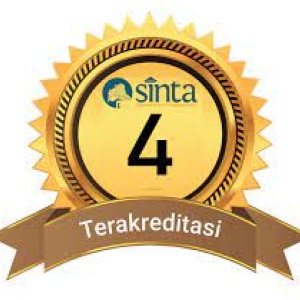Perempuan, Mahar, dan Stratifikasi Sosial dalam Naskah Peraturan Bimbang dalam Negeri Bangkahulu
DOI:
https://doi.org/10.37014/jumantara.v12i1.1096Keywords:
Women, Dowry, Social Stratification, Manuscript, Bengkulu MalayAbstract
This study discusses the relationships between women, dowry and social stratification that are reflected in a manuscript on marriage regulations in Bengkulu entitled Peraturan Bimbang dalam Negeri Bangkahulu held in the National Library of Indonesia, with shelfmark Ml.144. This article considers the position of women in the determination of marriage dowry in the Peraturan Bimbang dalam Negeri Bangkahulu manuscript, and aims to describe the relations between women, dowry and social stratification that prevailed in 1882 and to describe the views of Bengkulu society regarding marital regulations. This research was conducted using descriptive analytical methods and literature study techniques and sociological approaches to examine the interrelation of these three elements. The results show that there are binding rules between women, the dowry and social stratification in the Bengkulu Malay community as reflected in the text. The regulation determines the amount of dowry used as a sign or symbol of women's social status in society, and this concept is still valid in the Malay-Bangkahulu community to this day. However, the regulation experienced a shift in the dowry determination. Specifically, the determination of the amount of dowry in the past was based on the lineage owned by women, whereas at present the education and profession of women are the determining factors that are capable of causing changes in social stratification that develops in society.References
Aini, Noryamin. "Tradisi Mahar di Ranah Lokalitas Umat Islam." Ahkam XIV, no. 1 (2014).
Apriyanti, A. "Historiografi Mahar dalam Perkawinan." An Nisa'a 12, no. 2 (2017): 163-178.
Burhan, F. Bengkulu dalam Sejarah. Jakarta: Yayasan Pengembangan Seni Budaya Nasional Indonesia. 1988.
Chanafiah, Yayah. Edisi Teks dan Analisis Nilai-Nilai Adat Naskah Undang-Undang Adat Limbago Bangkahulu. Laporan Penelitian. Depok: Universitas Indonesia. 2000.
Chowdury, Farah Deeba. "Dowry, Women, and Law In Bangladesh." International Journal of Law, Policy and the Family 24, (2010).
Creswell, J. W., dan Creswell, J. D. Research design: Qualitative, quantitative, and mixed methods approaches. Los Angeles: SAGE publications. 2018.
Darsono, dkk. Berjuang dengan Uang Mempertahanankan dan Memajukan Republik Indonesia: Semangat Juang Otoritas dan Masyarakat Sumatera Utara. Jakarta: Bank Indonesia Institute. 2017.
Djamaris, Edwar, dkk. Naskah Undang-Undang dalam Sastra Indonesia Lama. Jakarta: Pusat Pembinaan dan Pengembangan Bahasa Departemen Pendidikan dan Kebudayaan. 1981.
Farida, M. S., dan H. Y Hasan. Undang-Undang Simbur cahaya Sebagai Sumber Hukum di Kesultanan Palembang. Universitas Sriwijaya. 2012.
Fitriyah, F. dan Hamdani Ma'akir. Pelaksanaan Perkawinan Bujang dengan Janda Berdasarkan Hukum Adat Mukomuko di Kecamatan Kota Mukomuko Kabupaten Mukomuko. Thesis, Universitas Bengkulu. 2014.
Hawab, A, Ikram BA, M, dan Dalip, A. Sejarah daerah Bengkulu. Jakarta: Proyek Penelitian dan Pencatatan Kebudayaan Daerah. 1977.
Jamaluddin dan A. Amalia. Buku Ajar Hukum Perkawinan. Aceh: Unimal Press. 2016.
Jones, G. W., et.al., eds. Changing marriage patterns in Southeast Asia: Economic and socio-cultural dimensions. London: Routledge. 2015.
Krisnalita, L. Y. "Perempuan, Ham, dan Permasalahannya di Indonesia." Binamulia Hukum 7, no. 1 (Juli 2018).
Lapian, A. B., dan S. Sjafi'i. Sejarah Sosial Daerah Kota Bengkulu. Jakarta: IDSN Depdikbud. 1984.
Sari, P. D. Pandangan Hukum Islam Terhadap Implementasi Uang Hantaran (Studi Kasus Di Desa Keban Jati Kecamatan Manna Kabupaten Bengkulu Selatan). Skripsi. IAIN Bengkulu. 2019.
Soekanto, S. Sosiologi Suatu Pengantar. Edisi Revisi. Depok: Rajawali Pers. 2019.
Shihab, M. Q. Tafsir al-Misbah: Pesan dan Kesan, dan Keserasian al-Qur'an. Jakarta: Lentera Hati. 2002.
Subhan, Z. Menggagas Fiqh Pemberdayaan Perempuan. Jakarta: El-Kahfi. 2008.
Downloads
Published
Issue
Section
License
Copyright (c) 2021 Jumantara: Jurnal Manuskrip Nusantara

This work is licensed under a Creative Commons Attribution-ShareAlike 4.0 International License.
- This statement is the author's commitment to respect copyright, both in terms of citing other people's work and utilizing journal content. If necessary, the author can send an Authenticity Statement of Article stating that "this work is the author's original idea and has never been sent to another publisher and published in any publication"
- The author retains copyright.
- The moral rights of publication belong to the author.
- Formal legal aspects in the use of journal publications refer to the Creative Commons Attribution-ShareAlike 4.0 (CC BY-SA) license, which means that journal content can be used freely for any purpose.









